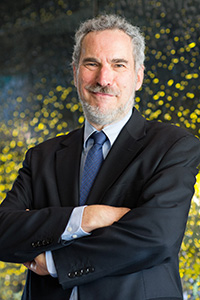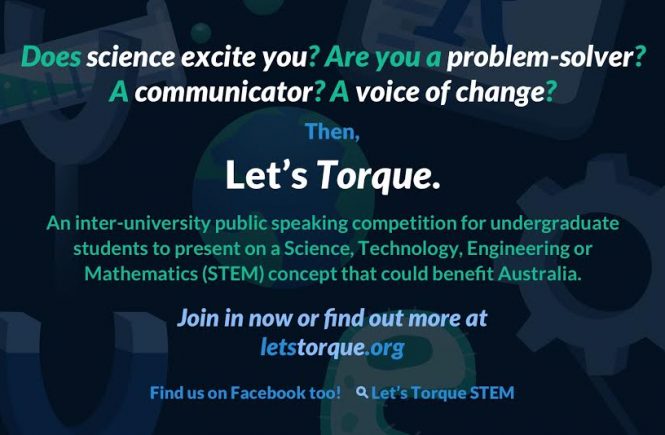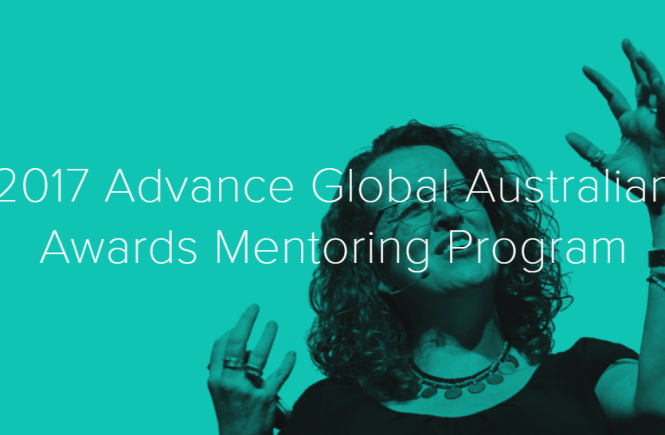By Carl Wang, Science student
As a student interested in the medical sciences I am always torn between medicine and research. Some days I gather the resolve to push the boundaries of human knowledge, whilst other days I endeavour to ease the burden of suffering one patient at a time.
In my conflict, I decided to talk to someone who has been through both. Enter Professor Ross Coppel, a man who, starting with an MBBS, has branched out into fields such as microbiology, bioinformatics, and molecular biology. He is currently the Deputy Dean and Director of Research in the Faculty of Medicine, Nursing, and Health Sciences.
Ross’s qualifications and accolades are as varied and plentiful as the man’s interests in the fields that make up biomedical research, and an expanded biography may be found at http://www.med.monash.edu.au/microbiology/staff/coppel.html
After sending him an email requesting an interview, I found myself being scheduled about a month after I asked for the interview, a good indication of how busy he is even after the teaching semester had ended.
Below is a selection of questions that were most relevant to students considering careers as clinical scientists, bioinformaticians, or scientific communicators.
In your career you have gone from an MBBS, moving onto a PhD. What convinced you to go from a physician to a researcher?
I wasn’t a physician. I had graduated as a doctor and had done my intern years. But I had done a Bachelor of Medical Science, and I really enjoyed that, and I worked with some great people, and I was thinking about what I would do after my internship, and I thought I hadn’t really enjoyed anything quite as much as that year. So I got back in touch with some of the people I worked with and that resulted in me starting a PhD.
So did you think that having both qualifications, both an MBBS and a PhD, helped you get some sort of edge in your career?
Absolutely. If your research was medically related, yes. There’s a general knowledge that you get about all sorts of areas by doing medicine that you don’t necessarily get in all basic science degrees. You understand how that plays across medicine, disease, and where the problems are and the needs are. So it does help you put it into context. Particularly nowadays that the focus of much research funding is more translational, around taking basic discovery science into clinical setting is becoming more of an advantage.
Do you think it’s worth doing both [MBBS and PhD] considering how much time you need to spend?
It’s an individual answer, you’ve got to know where your interests lie. For some people, it’s a total waste of time to their research, or the people that have no interest in medicine and will find that part of it extremely difficult to do. So I don’t think you can make a general statement. The type of the person who can do both, and there certainly are advantages to doing both, will end up with a head start relative to other people.
Although it’s a bit of a playoff actually because at a certain age, let’s say 26, if you have gone through and just done a PhD, you might have a number of papers and already be started in research, whereas the person that’s clinically trained starts a few years behind. But you generally catch up. You know along the way, the stipends for a PhD are much higher if you are medically trained than they are if you come from a science background. If you’re someone who can do both, I think it’s really helpful to do both.
Your career is in a lot of different areas. It was mainly microbiology but then you also do molecular biology, genomics, and bioinformatics. Bioinformatics is one of the newer fields of science, how important do you think it is for a researcher to have those skills for themselves compared to say, outsourcing it to a bioinformatician?
There are different levels of skills you can have. There’s understanding how a particular approach can be used, the sorts of questions it can answer, the sort of data it can handle. They’re not generally people who can write code and they’ll often get someone who’s technically more adept to do that within the context of the question and the approach that they have set out.
Bioinformatics will be an essential skill because more and more of the world’s scientific data is digital in some form and it will be in the public domain by and large. Actually knowing what you can mine, what is usefully brought into use and compare with the data that you generate, that skill will be a real advantage. There are some beautiful papers out there where people have thought about really important biological questions, and they’ve not generated the data. But they’ve worked out that if you think about that data, not for the purpose that the people that generated it did, but at a tangent, you can actually take all that information and extract a really interesting answer from it. That’s going to be gold because everyone is generating so much data, and if they use it and reuse it and come up with clever questions that that data informs, you will have a very successful career.
How would you recommend a student to pick up bioinformatics as a subject or, in their early career, how would they be able to develop those skills?
So I think you have to have a good understanding of yourself. If you’re someone who likes to code and who programs, it’s relatively simple because as part of your medical training or other subject training, you’ll get the biology aspect, and you would have already have that coding capability. A lot of bioinformatics is not particularly complicated, in that there are open source programs and often what you’re doing is basically converting data into a format that you can pipe into those programs.
A lot of the bioinformatics requirement is to take data and convert it into the right formats, chain it through a number of analyses, then look at the results and be able to interpret them. My personal view is that it’s easier for someone who comes from an IT background to pick up the biology than it is for someone from a biology background to pick up the IT. But the questions, the actual scientific questions, often come from biologists.
As a book author, contributor to a number of publications, as well a professor and researcher, you understand scientific communication is extremely important to both the general public as well as your fellow colleagues. Are there any particular differences in how you address either of them apart from the terminology you use?
I always find I actually spend more time preparing for that audience than I do for a scientific audience, because you share so much with the scientific audience. Usually you’re talking at a conference where people are interested in the area you’re interested in, so they understand all the background and the questions, and you can launch straight into it. So it’s relatively formulaic and quite structured. That’s not true in a lay audience.
If you’re talking to a school group, they may know a bit more biology than if you’re talking to Rotary, and so you’ve really got to think about where they’re coming from, how you can turn it into an illustration, some sort of analogy, some sort of metaphor. Now you know that as soon as you do that you’re sacrificing something. No analogy is quite right.
I used to take along pieces of string that were different regions that were coloured to represent that this was DNA, this was a gene, then you could cut them to demonstrate splicing, and so I find it more challenging, but also more satisfying, to talk to those groups.
Now what I’m probably not too good on advising and talking about, is the social media approaches because that’s a subsequent generation. But I do think that’s a really interesting area, and there’s no doubt that we as scientists, because we are the recipients of taxpayer’s money, there’s always a responsibility on us to communicate what we do.
The other thing I think is hugely important is providing input into public debates. We do have responsibility to take part in those debates. Recognising the fact that they will come to it with their own prejudices. Just because they’re scientists doesn’t make us unbiased, you’ve got to be aware of that in yourself.
You’ve made quite a substantial impact on Australia and the world. What would you say you would attribute your success to in both your internal abilities, strengths or attributes, and the opportunities that you took throughout your life?
It’s always the combination. A thing that you can’t overestimate is luck. You have to be at the right place at the right time, and mentored by good people. You can be incredibly intelligent and have great skills, but the topic you pick, it gets scooped, or it just doesn’t go somewhere and the techniques at the moment aren’t sensitive enough to do it. Sometimes you can do nothing about that. What you can do something about is the energy and persistence you bring. So even if you end up losing out sometimes, getting scooped, or having a dead end, but you continually work and you’re energetic and not just focused on a very narrow area but are aware of what’s going on, bigger questions, new trends, new approaches, then you can maximise the luck that does come your way.
Try and work with better people than yourself. Research is a tough gig, it really is. You have to understand yourself, and be someone who can cope with the downs in life. Even now, I send in papers that get rejected, or I put in grants and they get rejected. You’ve got to pick yourself up and just say,
“Okay, I’ll listen to what the critiques were, I’ll try and improve it, and I’ll just keep going and keep working”.
You’ve got to have energy, you’ve got to have persistence, and you’ve got to have a level of stability in yourself, to help you get through the tough times. The downs in research are quite low but the ups are very high.
One of the things I’ve seen in a lot of doctors who come into research is that they have a fear of failure. So they don’t do as many experiments as they could and they don’t take as many risks as they can because they just worry that things might go wrong. I guess they come from an area where you don’t want things to go wrong because it’s people’s lives so they carry with them. Often, a reticence to really put themselves out there, so it’s something you do have to shake out from a clinical background.
Image: Professor Ross Coppel, supplied




